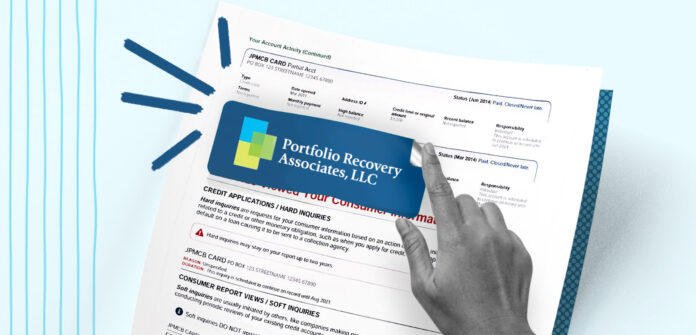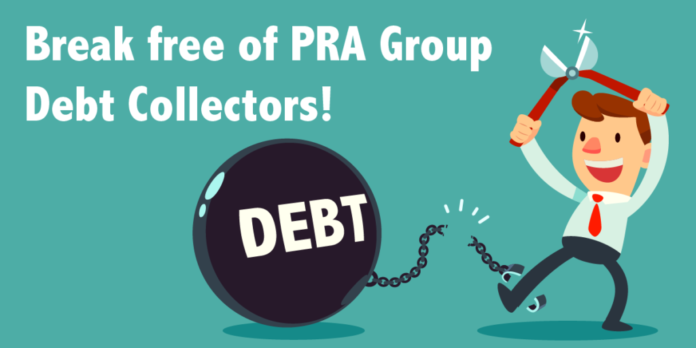Imagine this: you’re living a simple, peaceful, quiet life, and then suddenly you find a notification regarding a lawsuit brought up against you by some entity named “Portfolio recovery associates, LLC.” “Well then, what the hell is this? What should I do” – are perhaps the first thoughts to strike your mind. So you conduct the Internet search and, thank god, stumble upon this article – in which you will be told what to do against the Portfolio Recovery Lawsuit here. Let’s get the show on the road, then.
Who is “Portfolio Recovery Associates, LLC”?

“Portfolio Recovery Associates, LLC” is a company with a business model designed to operate by buying charged-off debts en masse from banks and other financial entities. Thus, your Portfolio usually shows up on your credit report; alternatively, this company may file a lawsuit against you. Their modus operandi is that Portfolio Recovery Associates, LLC files a myriad of lawsuits against consumers each year via local collection lawyers.
To prove the validity of their filing against you, Portfolio Recovery Associates will rely on the testimonies of the witnesses from the “business record affidavit.” Thus, it is of utmost importance to correctly understand the rules of challenging evidence stemming from such affidavits and attached documents. Should you have recently encountered a lawsuit from Portfolio Recovery Associates, immediate action is better to defend yourself.
What types of Debt obligations are usually purchased by PRA?

It pains to mention it, but Portfolio Recovery Associates is a well-diversified company – in a bad sense, of course. PRA can successfully acquire rights to debts of several types from different companies and other legal entities throughout the United States. Indeed, most of these “assets” are delinquent unsecured debts in nature that have been previously charged off by the original lender – like medical, credit card debts, or personal loans. Last but not least, a lot of obligations originating from Chapter 13 bankruptcies are also bought off by Portfolio Recovery Associates.
The legal entities from which Portfolio Recovery Associate buys off debts and other financial obligations include:
- Companies that issue credit cards;
- Hospitals and other providers of medical assistance;
- Banks;
- Credit unions;
- Larger retailers (i.e., department stores);
- Telecom firms;
- Utility providers companies;
- Automobile finance companies;
- Consumer finance companies;
- Student loan lenders.
Portfolio Recovery Associates offers the lender a percentage of the outstanding invoice amount. Correspondingly, the credit benefits by receiving a portion of the debt that he has written off as bad debt and thinks that it will never be collected from that person. Portfolio Recovery Associates benefit, in turn, by receiving an account for the price that is smaller than the account’s worth to manage the whole debt sum and thereby turn in a hefty profit. But, of course, it is not painless to pursue debts that have already been written off some time ago – thus, PRA as a company must be incredibly aggressive and persistent in collecting debt from each account.
Distinguish between receiving the letter and getting sued
Being sued differs from receiving a letter. A person should come to your door and hand over the papers to you to sue you. Even if you do not receive the documents in person, the sue papers differ from an ordinary letter, and you will see an imperative “Summons” mentioned on the paper.
The alternative course of action is that you simply receive an ordinary letter regarding debt reimbursement in the mail. That does not mean that you’re outright sued but serves as a warning instead.
How to beat Portfolio Recovery Associates in court?

It’s highly likely that you just hadn’t enough time to ask for proof of debt before Portfolio Recovery Associates brought your case to court. Still, you can find attorney services to get your back. The most crucial key to defeating Portfolio Recovery Associates is responding directly to the lawsuit. And an individual should respond by submitting an “Answer” document – it’s pretty straightforward.
Here is a list of mistakes you can make – and how to avoid them.
Answer quickly
You have a maximum of a month (the exact time depends on your state) to write and file an answer letter to the impending lawsuit. Thus, make sure that you send an Answer in time. A failure to respond will mean that PRA will successfully secure a legal judgment against you.
Be concise
The only information that should be in an answer is either the admittance or denial of the facts stated in the original complaint. Therefore, there is no need to pen a full-fledged essay regarding your financial and life situation.
Don’t go with voice communications
It would be best if you always communicated with debt collectors in writing so that you can carefully consider each of your words so that they won’t be used against you later. Reminder, you are dealing with the predator professionals.
Stop the payments
A lawsuit may be filed against you even though you are currently making payments after a debt restructuring. If this happens, there is no sense in continuing with payments – it is in your best interest to stop them to save money for attorneys instead. It is perfectly valid and legal, but you should also write a letter to the debt collector mentioning that you stopped with payments because you were sued.
Deny the debt amount
It is wrong to assume that a debt collector claims the correct amount of money. So, make sure you deny this paragraph listed in the complaint, even if you don’t know whether it’s right.
Demand concrete proof
Portfolio Recovery Associates are most often bluffing, excepting the people to panic and cave into their demands. But you’ve read this article, and you are wiser now – thus demand their exact verification for every cent they say you owe.










